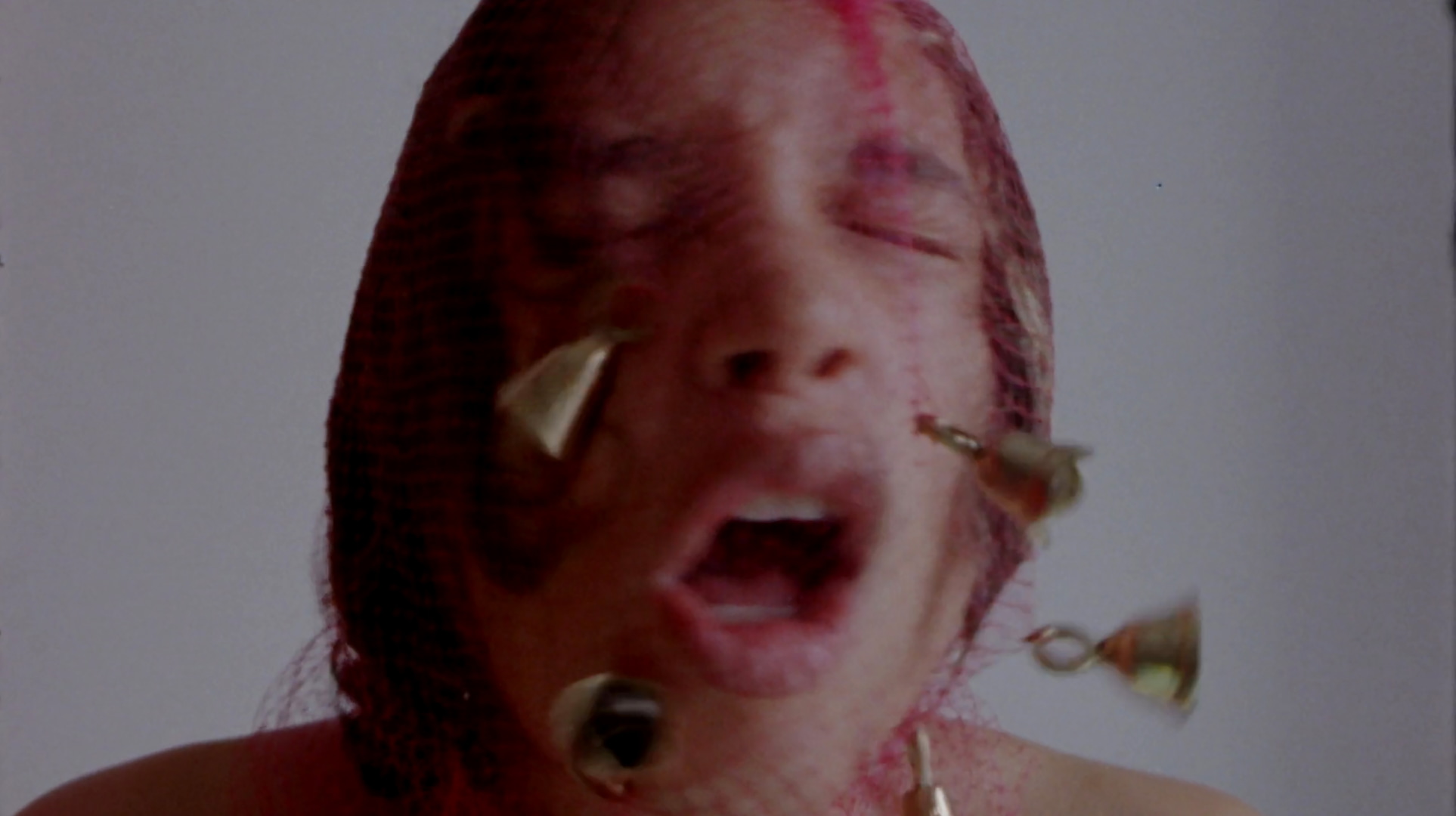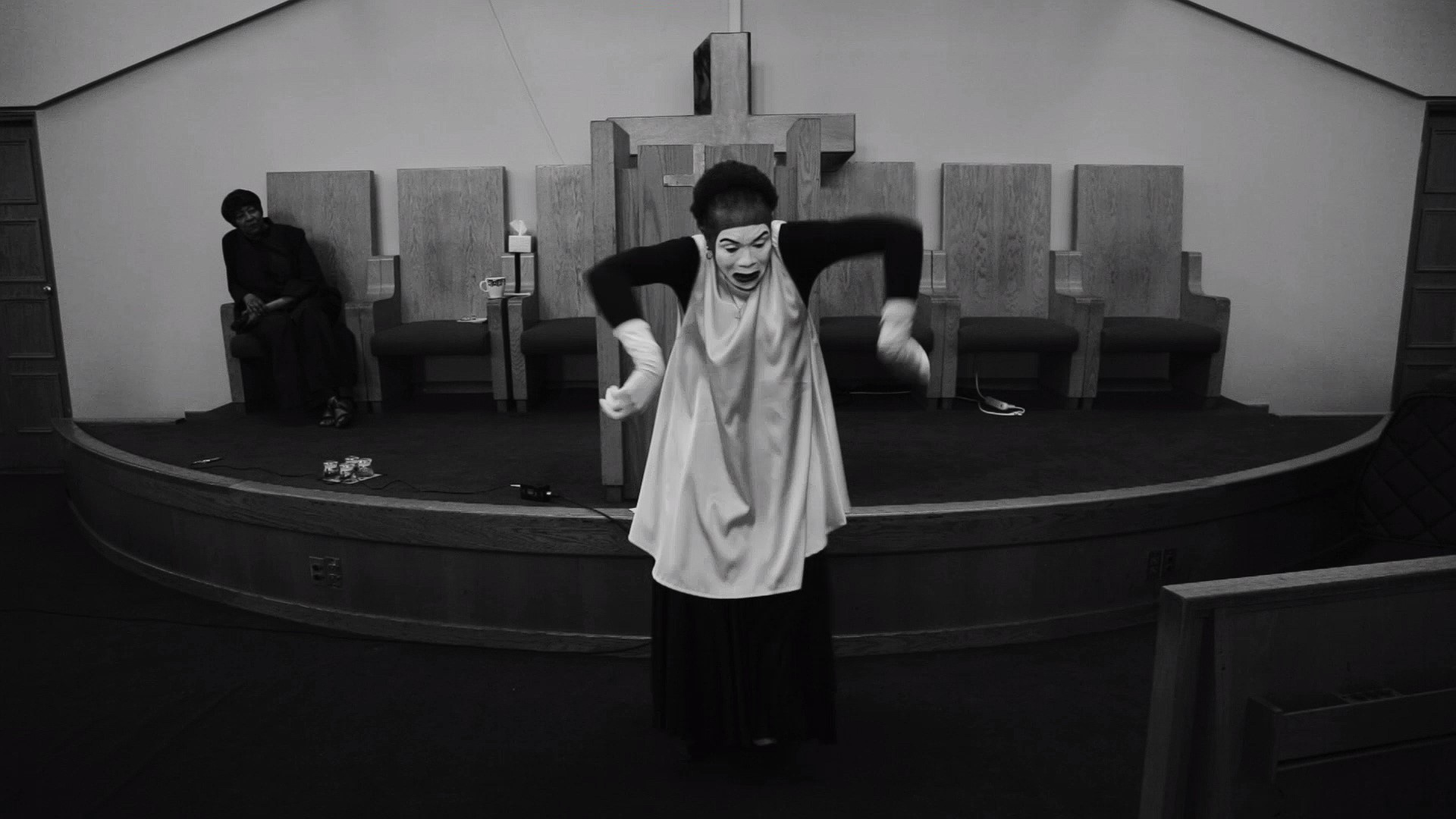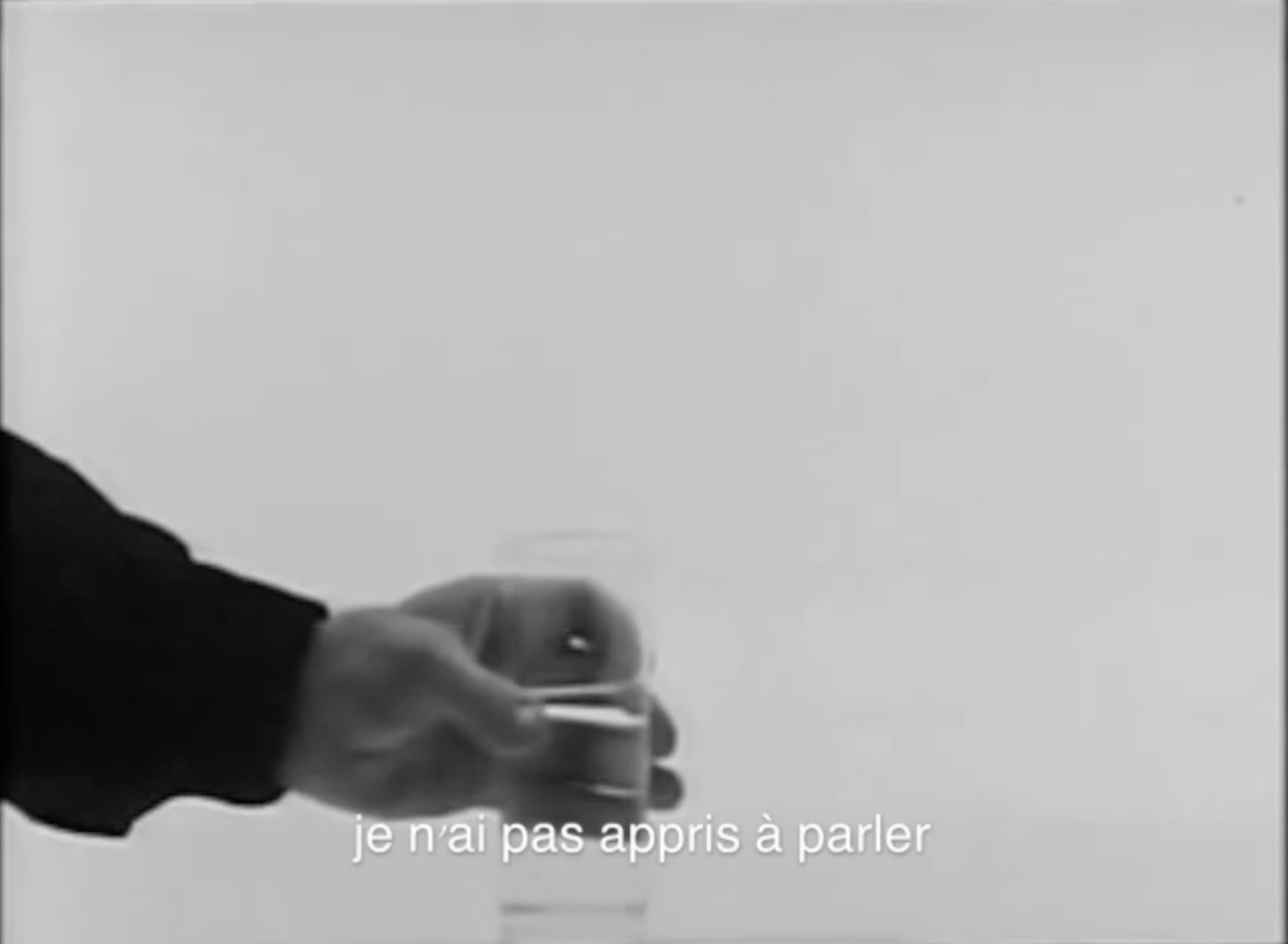Breaking Translations
Breaking Translations
© Mother Tongue, Mother Master 16mm film. 2018.
Info
Title
Breaking Translations
Curated by
Cindy Sissokho
Artists
Steffani Jemison, Tarek Lakhrissi and Phoebe Collings-James
Location
HANGAR ONLINE
Opening
July 17th | 7 pm
Dates
July 17th to August 7th
Talk
July 28th | 6 pm
Talk between Cindy Sissokho and Phoebe Collings-James
Videos
July 17th 7 pm to July 24th
Sensus Plenior – Steffani Jemison, 2017
July 24th 7 pm to July 31th
Mother Tongue, Mother Master – Phoebe Collings-James, 2018
July 31th 7 pm to August 7th
Hard To Love – Tarek Lakhrissi, 2017
Synopsis
I am
impossible to explain
remote from old and new interpretations
and yet
not exactly
June Jordan
excerpt from Who Look At Me, 1969
The daily language(s) that is limiting us, pushes us, to create new horizons. How to speak from and towards a place of equality? says French philosopher Jacques Rancière, in his published interview with Javier Bassas, titled Les Mots et les Torts (Words and Wrongdoings) [1]. He further expands on the need for the erasure of a hierarchy between ideas and actions and from which to articulate equality as a possible concept between images and words.
In four moments, through the works of Phoebe Collings-James, Steffani Jemison and Tarek Lakhrissi, Breaking Translations tend to offer direct and indirect interpretations around the codification and uses of language, its limits and the need for thinking about utopic spaces of being, from and for a place of margins. To refer to the words of the Afro-Brazilian curator Keyna Eleicson, ‘[the] bod[y]ies that are constantly translating and being translated, and this state of being in translation also relates to the colonized body.” [2]
The body language that comes with words, the systems of knowledge and state/institutional violence which comes with terms and expressions that drive artistic practices to address language as a space of possibilities and utopias for all of us to gather, to question, to heal and to dream. It is the carving of current, valuable and renewed identities as everyday refusal, as a collective and self-liberation in the articulation of future narratives of belonging through and with performative language(s).
The three films and artists’ common denominator is their intersection of performance and the use and interrogation of language when writings, as providing new fictional visions to belong and question (body) languages in movement, state of shifts and renewal.
[1] Rancière J, Bassas, J, Les Mots et les Torts, 2021, La Fabrique Editions.
[2] Keyna Eleison interviewed by Fernanda Brenner for Frieze, 18 September 2020. Available to read here: https://www.frieze.com/article/were-constantly-both-dancing-and-fighting-keyna-eleison-decolonizing-brazilian-institutions
Cindy Sissokho
Cindy Sissokho (b. Montreuil/France) is a cultural producer, curator and writer with a specific interest in intellectual, political and artistic aspects of decoloniality within the arts, and culture. Her work is nurtured by the urgency to broadening and disseminating epistemologies and new cultural production from the Global South.
Her curatorial work is a practice of disobedience contrary to hegemonic discourses and neoliberal institutional politics by implementing disorder. She does so by working through collaborative practices, accessible writing and everyday pedagogical tools and exchanges, amongst others.
She currently works as a Curator and Special Projects Producer at the New Art Exchange in Nottingham (UK).
Scientific coordination and organized by Mónica de Miranda
This project is part of the project Post-Archive: Politics of Memory, Place and Identity, CITCOM-CEC-FLUL
This project was produced with national funding from the FCT-Fundação para a Ciência e a Tecnologia, I.P. under the project UIDB/00509/2020.



